This discussion and review contains only minor spoilers for Secret Invasion, and it contains no spoilers for Andor, which you should really watch.
The ghost of Andor haunts Secret Invasion.
During a discussion of Guardians of the Galaxy Vol. 3 on the podcast The Big Picture, journalist and writer Joanna Robinson reported on gossip that she had heard from inside Marvel Studios while researching her book MCU: The Reign of Marvel Studios. Apparently the studio is hoping that Secret Invasion “is their Andor.” This makes a certain amount of sense. Andor represented something of a “reset” of the company’s troubled Star Wars brand, with a more grounded perspective.
Although it is built around the threat of shape-changing, green-skinned aliens, Secret Invasion offers a grounded take on the Marvel Cinematic Universe (MCU). There is neither a cape nor cowl to be seen. The cast is populated by secret agents from across the shared universe: Nick Fury (Samuel L. Jackson), Maria Hill (Cobie Smulders), Everett K. Ross (Martin Freeman). The one superhero who does appear in the early episodes, Jim Rhodes (Don Cheadle), never dons his trademark armor.
Secret Invasion is not a world of laser blasters and magic hammers. Instead, it is set against the backdrop of gunfire and politicians. In the opening five minutes, a character is shot through the chest at extremely close range. Later, Fury accuses professional colleague Sonya Falsworth (Olivia Colman) of conducting an “extraordinary rendition.” At the climax of the show’s second episode, a prisoner is subjected to an enhanced interrogation that would make Jack Bauer (Kiefer Sutherland) proud.
Secret Invasion stresses that it is trying to bring the comic book universe back to something closer to reality. After the first episode’s opening credits, Nick Fury is introduced returning to the planet from a literal spacecraft, with his loyal lieutenant Maria Hill greeting him, “Welcome back to Earth.” This is the show’s mission statement. It is about grounding these fantastical characters, proving that they still exist in this world, despite Falsworth’s warning that Fury should “go back to (his) space station.”
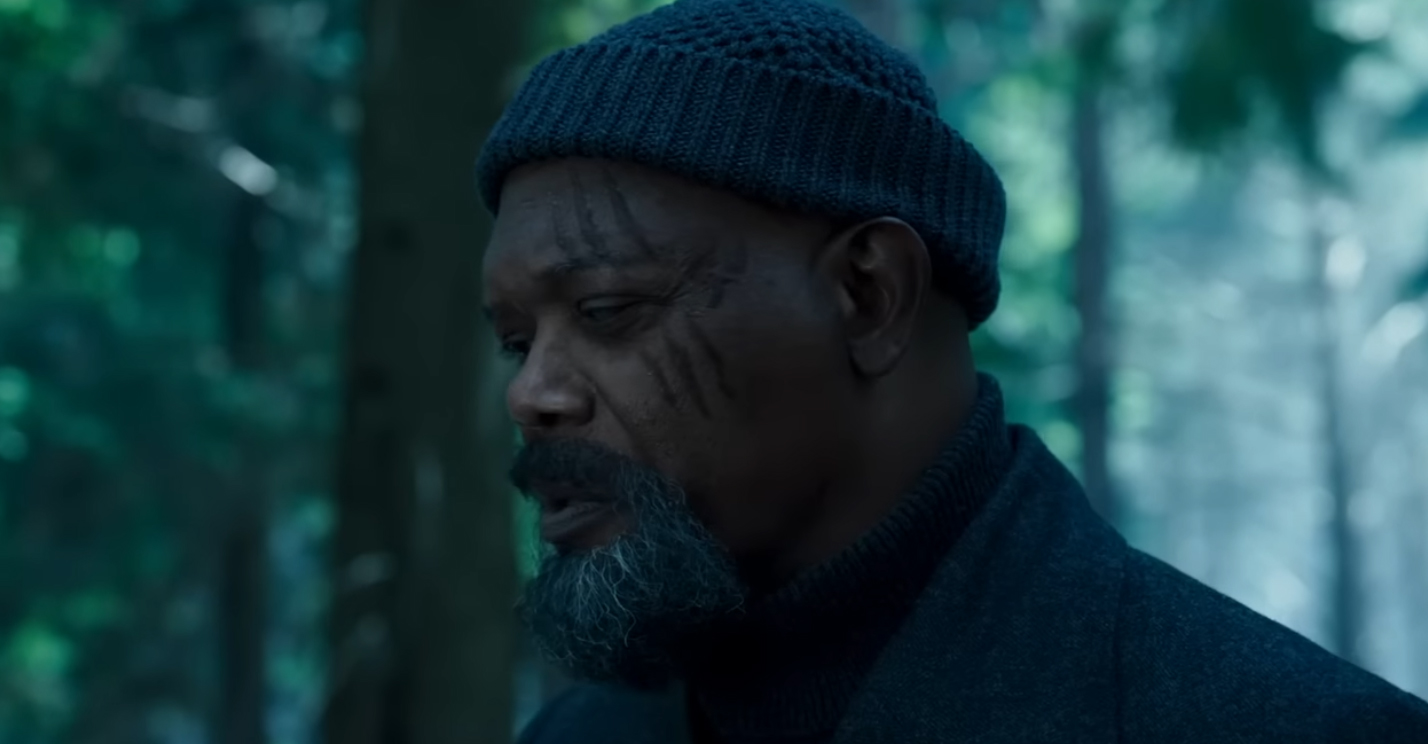
On paper, this is an interesting experiment: a major MCU project without superheroes. Sure, there were arguably some examples at the fringe of the shared universe with shows like Agents of S.H.I.E.L.D. or Agent Carter, but this is a prestige six-episode Disney+ miniseries starring Samuel L. Jackson. There’s an obvious desire to see if audiences will follow the brand into content that is less overtly superheroic, that strays just a little outside the established framework.
After all, so much of the modern discourse around the MCU centers on the dreaded phrase “superhero fatigue.” Ant-Man and the Wasp: Quantumania was a certified box office dud, failing to break even. Marvel Studios has adopted a defensive stance, staggering upcoming releases like The Marvels and the planned Avengers sequels. While the brand is still hugely successful, there is a sense that it is no longer the most successful franchise on the planet. The franchise seems worried by this.
This is woven into the text of the show. Much is made of Fury’s advancing age. Jackson is 74 years old, and the series makes no effort to disguise that, giving him a bushy gray beard. Early in the show, Fury pauses to admire the clocks hanging on the wall of Falsworth’s study. “A clock goes up when your time in the Circus is done,” she explains, a none-too-subtle suggestion that Fury is a man out of time. He feels like a stand-in for the MCU itself, a franchise that is 15 years old — and vulnerable.
Characters repeatedly warn Fury that he has missed a step, that he is not the man that he used to be. In a direct acknowledgement of the franchise’s somewhat uneven critical and commercial reception in the wake of the era-defining Endgame, characters repeatedly suggest that Fury was never the same after Thanos (Josh Brolin). “You were never the same after the Blip,” Hill muses. “You always told me there’s no shame in walking away when the steps are uncertain.”
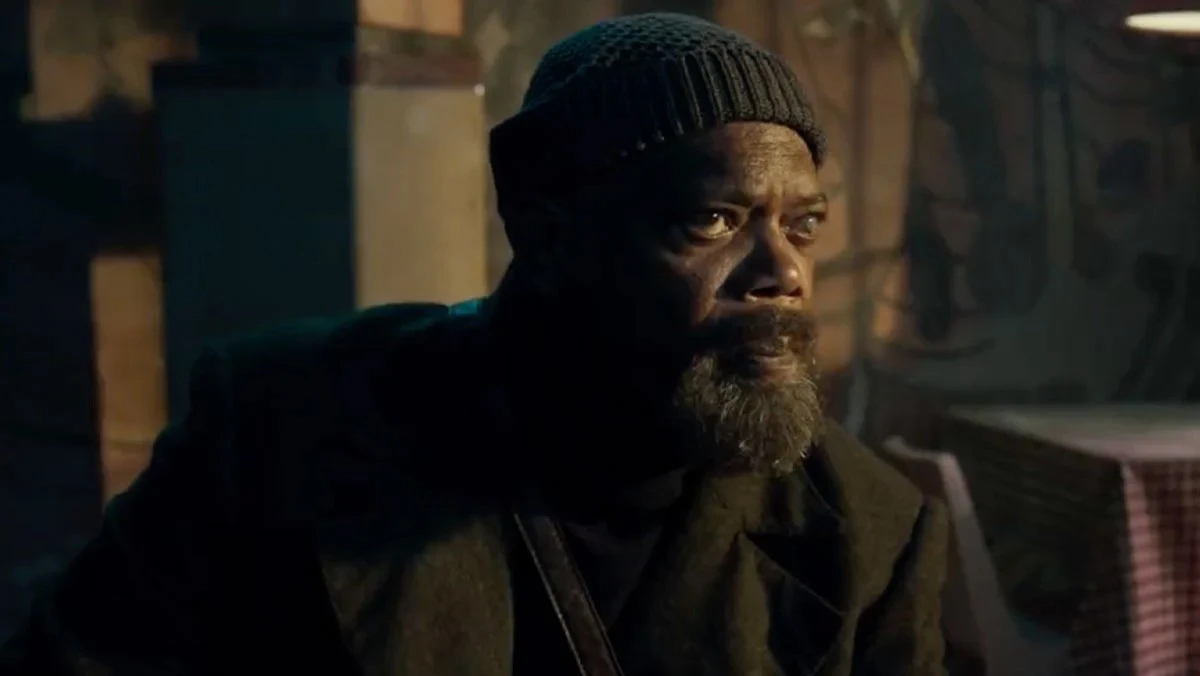
Fury has always been an avatar of the MCU, dating back to Iron Man in 2008. The franchise only truly became a shared universe in that post-credits scene, as Fury welcomed Tony Stark (Robert Downey Jr.) to “a much bigger universe.” Jackson has been a franchise constant, even through the departure of actors like Downey Jr., Chris Evans, and Scarlett Johansson. As such, the debate about Fury’s competence in Secret Invasion plays as an effort by the MCU to assert its own continued relevance.
This explains the show’s genre shift away from superheroes. Pressed on the idea that audiences might grow tired of comic book movies, Marvel Studios president Kevin Feige suggested the idea was akin to suggesting that people might grow tired of movies based on books. “A novel can have any type of story whatsoever,” he insisted. “So it all depends on what story you’re translating. Non-comic readers don’t understand that it’s the same thing in comics.”
Secret Invasion seems to be putting that argument into practice, shifting out of the familiar genre framework of these sorts of projects into the world of politics and espionage. The comparison to Andor seems quite deliberate, even beyond the genre and tone. It makes sense that Marvel Studios would want its own Andor, as that show was the best-received Star Wars in years and can be counted among the best Star Wars ever produced. It breathed new life into the intellectual property.
Unfortunately, Secret Invasion suffers from one crucial disadvantage over Andor. Andor was the work of a showrunner with a strong and distinct sensibility. Tony Gilroy had received Oscar nominations for both writing and directing Michael Clayton. He had written the first three Bourne movies and directed The Bourne Legacy. The writing staff on Andor included two more Oscar nominees, Tony’s brother Dan and former House of Cards showrunner Beau Willimon.
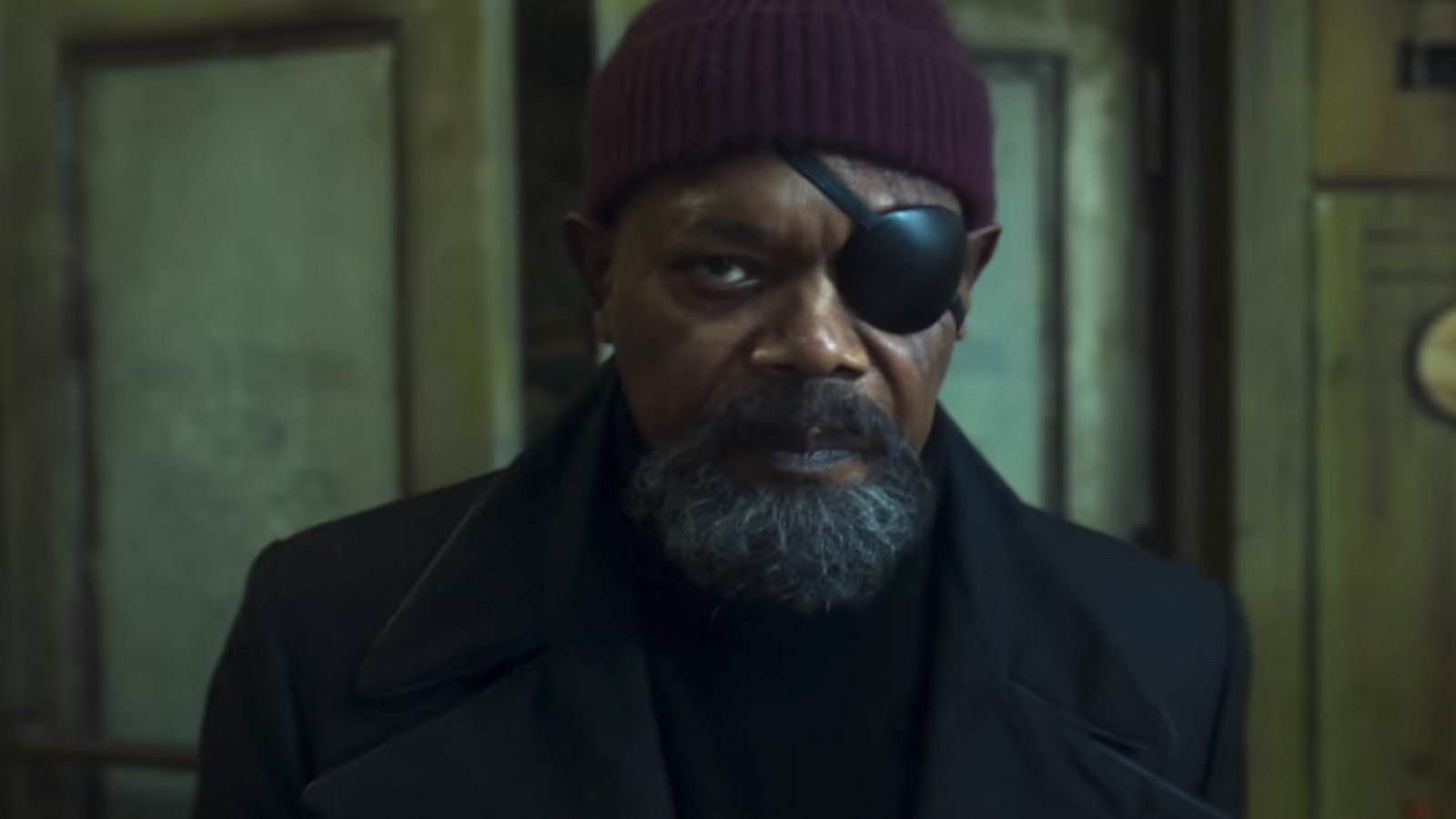
In short, Andor was a prestige television show from a collection of writers who were adept at writing these sorts of stories. Unfortunately, one of the big issues with the Disney+ streaming shows has been a relative unwillingness to work with those sorts of creatives. Marvel Studios does not believe in “showrunners,” preferring to hire less senior “head writers” and head directors. This makes it difficult to attract writers with the skill set necessary to oversee a project like this.
To be clear, there are writers who thrive in this environment and who work very well within the professional and genre confines of the company’s writing framework. There is a reason why Michael Waldron has become so invaluable to the company following his work on Loki and Doctor Strange in the Multiverse of Madness, demonstrating the ability to rewrite material extremely quickly that is both conversant with the tropes of the genre and capable of hitting any producorial mandate.
A show like Secret Invasion requires a different skill set than a project like Loki or Doctor Strange in the Multiverse of Madness. To be clear, the show has a talented production team. Head writer Kyle Bradstreet worked on Mr. Robot and Berlin Station. Head director Ali Selim was both a writer and director on The Looming Tower. However, not all the team are so qualified; Bradstreet shares a co-writing credit with Brian Tucker, whose only previous writing credit is the film Broken City.
Secret Invasion lacks the polish, the wit, or the craft of Andor. Its dialogue is frequently labored, with characters bluntly stating themes with no rhetorical flourish or subtlety. Its exposition is often clunky, with its spies comically inept at both delivering and reading subtext. There is a sense that the show doesn’t trust its audience to follow along with even the very basic espionage plot and that its gestures towards sophistication are only skin-deep.
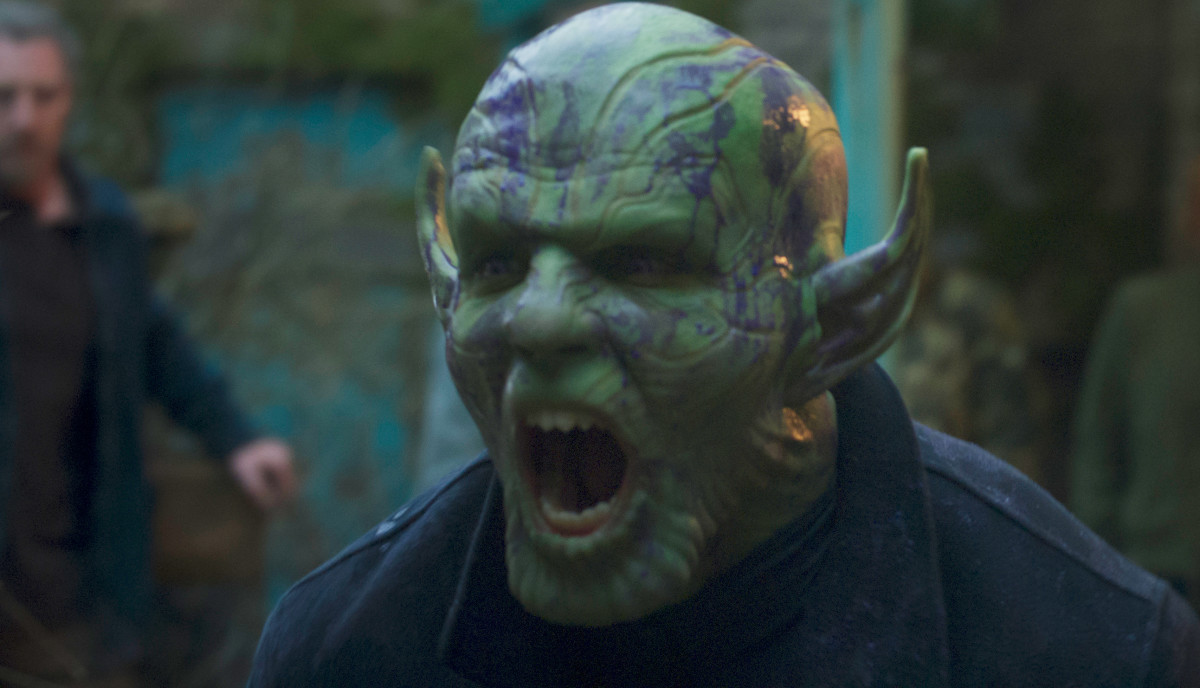
It doesn’t help matters that the show seems to be playing with matches. The series is ostensibly a loose update of the comic book miniseries of the same name, written by Brian Michael Bendis and illustrated by Leinil Francis Yu. The comic was the product of the late Bush era, a paranoid fantasy about shape-shifting invaders that had managed to infiltrate the highest echelons of the superhero community. It is something of a charged premise in the era of QAnon and anti-immigrant paranoia.
Captain Marvel was a deeply flawed film, but there was something genuinely clever and humanist in its decision to reframe the Skrulls as dispossessed refugees who were the victims of persecution and paranoia. Even as a throwback to 1990s pop culture, it understood that the decade’s trademark cynicism and conspiratorial thinking had very real connotations in the modern political climate. Even X-Files creator Chris Carter has disavowed conspiracy theories in the current climate.
Just as Shang-Chi and the Legend of the Ten Rings rolled back Iron Man 3’s clever deconstruction of the racism that informed the character of the Mandarin to directly embrace the source material, Secret Invasion returns to the archetype of the sinister and faceless invading alien monsters that Captain Marvel rejected. This approach requires a great deal of nuance and skill, but Secret Invasion handles it with all the grace that The Falcon and the Winter Soldier brought to its social commentary.
To be fair, there is charm to be found in Secret Invasion. After a decade and a half operating at the edges of the shared universe, Samuel L. Jackson finally gets to hold court, at one point even sitting in a chair owned by Louis XIV. Fury finally gets to be center stage. While the show isn’t quite dynamic enough to pull it off, the shift in tone offers some welcome variety within the shared universe. Kris Bowers’ score feels suitably espionage-y.
Still, for a show that seems eager to position itself as a big swing in the shared universe, Secret Invasion is surprisingly rote. There are very few surprises to be found within the show’s first two episodes, and its attempts at sophistication largely fall flat, playing more like a generic ABC spy show than anything truly singular. Secret Invasion isn’t a mess; it’s a competently made piece of television. However, it’s not doing a particularly convincing imitation of a compelling spy thriller.

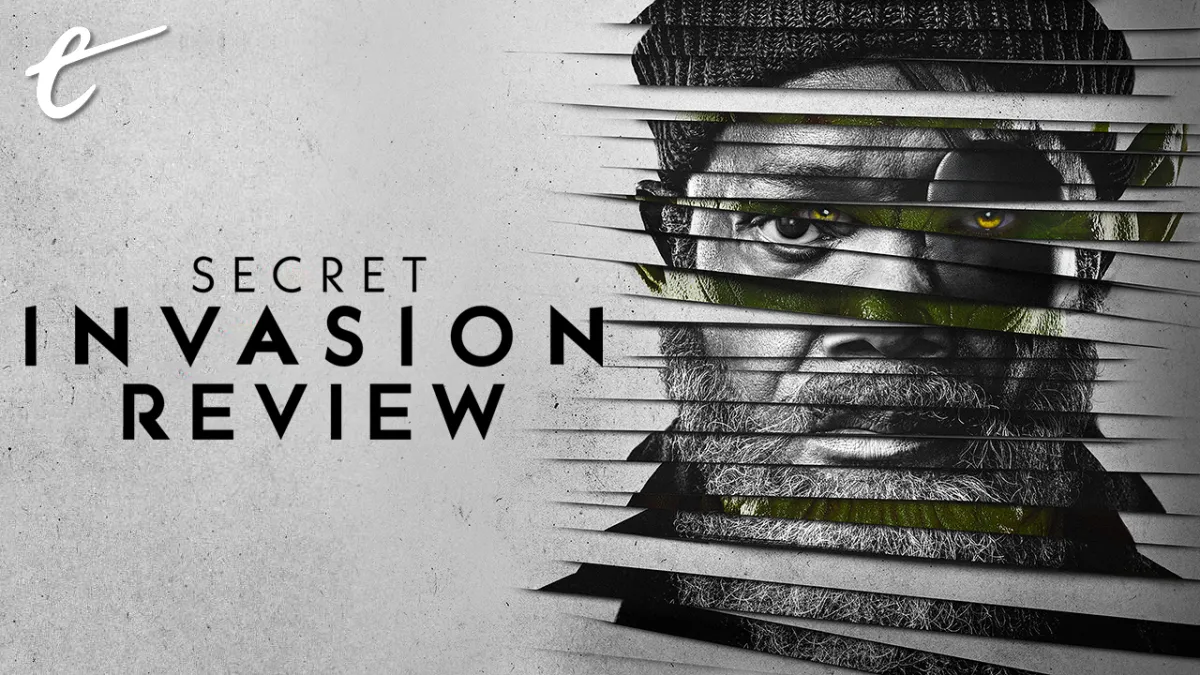




Published: Jun 14, 2023 12:00 pm